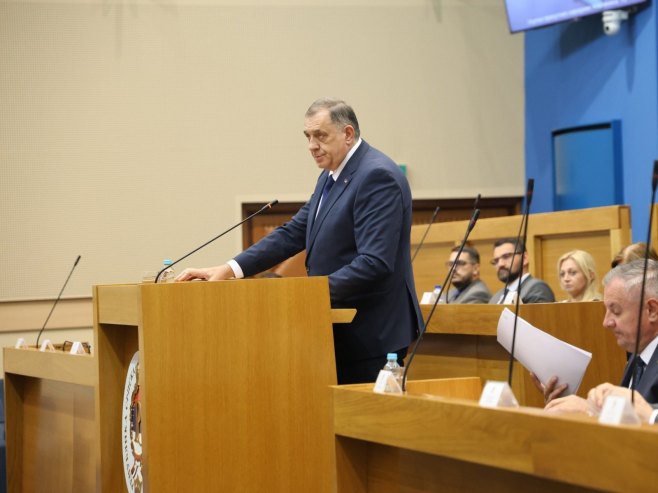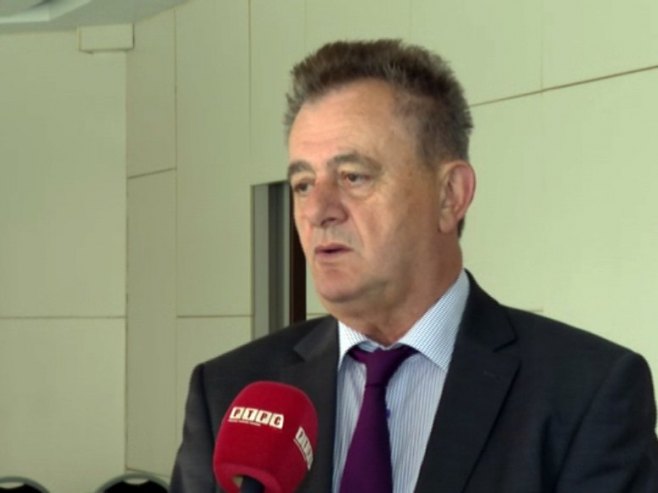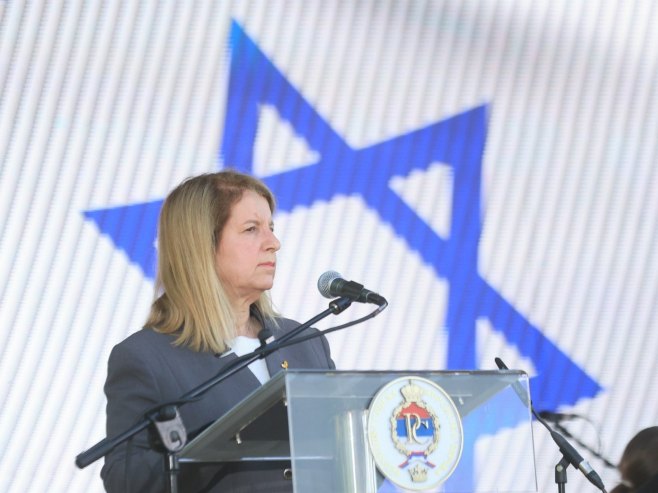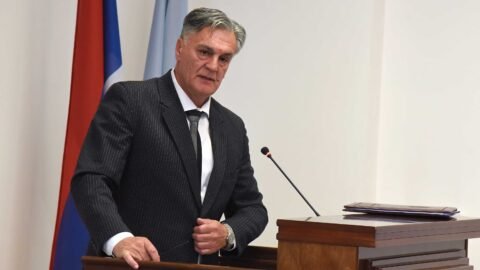Former Minister of Internal Affairs of Republika Srpska, Dragan Lukač, stated that the word “war” should be banned in Bosnia and Herzegovina and emphasized that demilitarization could be the best solution for the country.
Lukač noted that warmongering statements often come from politicians in the Federation of BiH, expressing doubt that anyone today would be willing to go to war or follow such backward policies.
“I believe that most people, in that case, would flee from BiH. Such statements from politicians are irresponsible and should not be tolerated in politics. They instill fear in the population. People must think about whether their children will once again be sent to war and whether they will survive,” Lukač said.
He pointed out that the previous generation was led into war, and it was difficult to explain why people who had lived, studied, and trained together suddenly started shooting at each other.
“The question of who is to blame for the war is always left unanswered, and it’s always ‘the other side.’ Who in their right mind can think that way today? I was in the war, and I went through many difficult situations. No side won. Everyone lost,” Lukač reflected.
He emphasized that no one can declare themselves a winner after the war and that the maximalist goals of the peoples in BiH cannot be achieved.
“We are destined to live together, alongside each other. It is better to try to be good neighbors and take care of our own interests and the interests of our children. I urge citizens to punish those in elections who, in any way, scare the public or call for war,” Lukač said.
In this context, Lukač also supports the policy of military neutrality advocated by Republika Srpska and Serbia, particularly due to past events, such as NATO’s bombing of the Serbs.
“We don’t trust those who once bombed us and killed our children, to be together with them today and for our children, our soldiers, to carry out missions around the world and die for someone else’s interests. We are trying to remain neutral and not belong to any military alliance,” Lukač stated.
Speaking about military policy, Lukač emphasized that, due to these reasons and the political situation, BiH cannot be part of any military alliance and that demilitarization could be a solution, a policy supported by Republika Srpska’s President Milorad Dodik.
“If you remember, after the war, the only politician who proposed the demilitarization of BiH and said we don’t need an army was Milorad Dodik. But it never came to pass,” Lukač noted.
He pointed out that any form of cooperation with neighboring countries is often misinterpreted, and that security is crucial for maintaining peace and stability. He reminded that even police exercises between Republika Srpska and Serbia were portrayed negatively by political Sarajevo, as was the canceled joint exercise at Manjača involving the Armed Forces of BiH and the Serb Army.
“There were immediate signals from the Federation that it was an aggression against BiH, that foreign troops were entering BiH, and so on. We even had a drill that the Republika Srpska Ministry of Internal Affairs conducted with the Gendarmerie and Police of Serbia on the Drina River near Zvornik. The next day, the media attacks from the Federation were about breaking BiH’s border, calling it aggression and claiming some rules were violated. I believe we must cooperate in our region,” Lukač stressed.
He concluded that regional cooperation is essential and that irresponsible statements from officials, aimed at gaining cheap political points, only benefit those who break the law and see opportunities in the challenging security situation.
Source: RTRS








